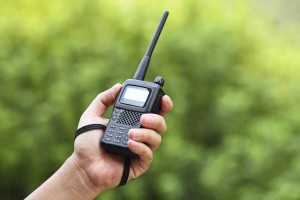Analog vs Digital Radios
 In the two-way radio world, there are two types of radios you can buy: analog and digital. Even though most would think that like cell phones, digital is the way to go, both have their pros and cons. What to buy depends on a number of different factors. Before you can decide which radio fits into your lifestyle or work place, let’s see what makes them different.
In the two-way radio world, there are two types of radios you can buy: analog and digital. Even though most would think that like cell phones, digital is the way to go, both have their pros and cons. What to buy depends on a number of different factors. Before you can decide which radio fits into your lifestyle or work place, let’s see what makes them different.
Analog radios use FM (frequency modulation) waves. These waves produce clear voice transmissions, but cannot filter out other noise around the sender. They are also not able to transmit signals past a few miles.
Analog radios are relatively inexpensive when compared to digital radios. They are far less complex and easy to use.
Analog radios have been in existence since the early 1900s and have therefore exhausted their advancement abilities.
There is no privacy on an analog radio as there is on a digital radio. A conversation can be heard by anyone else tuned into that station.
Digital radios are a bit more expensive than analog, but have far more capabilities, such as:
- Voice filtering
- Direct and group calling
- Text messaging
- Farther signal transmissions
- Call privacy
- TDMA protocol increases band usage, reliability and battery life
There are two kinds of digital radios, TDMA (Time Division Multiple Access) and FDMA (frequency-division multiple access). A TDMA radio uses the full 12.5 kHz channel and splits it into two time slots, using 6.25 kHz each. By splitting the band, more users can transmit on one channel, sending and receiving messages in succession based on time. TDMA radios have a higher battery life than FDMA, have reduced interference and many more voice and data channel options than FDMA radios.
FDMA radios, which are fewer in number than TDMA, use the frequency band by splitting it into narrow sub channels. It does not use the full 12.5 kHz that TDMA does. Fewer frequencies are available for use on an FDMA radio, and often upgrading is needed as more users are added. In contrast to the TDMA radios, FDMA radios are not vulnerable to timing issues. They can also be used with other digital and analog radios.
In many situations, analog radios are capable of performing the functions that many people require. They are relatively inexpensive and easy to find. Most also do not require a license, as we mentioned in our previous blog. They are also far less complex than digital radios and can typically be picked up and used by anyone with no learning curve. In addition, for emergency personell, analog radios can actually work better than digital radios. When a sender is speaking on a radio, noise behind them can be filtered out by a digital radio. But in some instances, especially when the background noise is particularly loud, a digital radio can actually error and confuse the two sounds, therefore creating confusion for the receiver.
In contrast, digital radios are, like cell phones, becoming the replacement for analog radios. They have many of the same capabilities as cell phones such as text messaging, group calling, privacy during calls and increased reliability. They have far more available frequencies to use, and can be conversational in fashion (the sender and receiver can speak at the same time). With the use of repeaters, their range can extend for hundreds of miles, and even without they are far superior in range to analog radios. Unlike analog, digital transmissions can be in any form such as voice or data.
Analog radios have reached the peak of their advancement. They are simple to use and are often all that is needed on a personal level. When an individual or company needs a more advanced radio that is capable of messaging, location services and more, they look to digital radios. As they become more and more popular, their price goes down. Their uses, like cell phones, will keep multiplying as technology progresses. They can be used on the TDMA protocol which has solved the problem of too many users on the same channels, and tend to be more reliable than most other radios, especially when used at great distances. If you’re a hunting guide or hiker, an analog radio might be all you need. But when your company is looking for advanced radios that can do it all, look to the world of digital radios.
